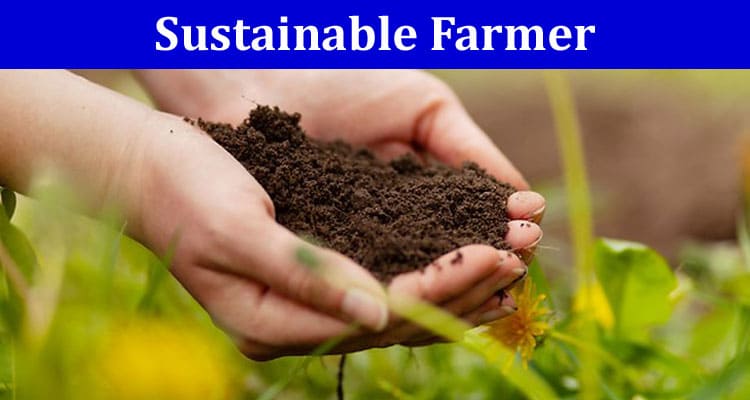Sustainable farming practices are gaining traction as awareness about environmental sustainability grows. It creates a healthy balance between protecting natural resources and maximizing agricultural yields. Farmers who adopt sustainable practices preserve the environment and improve soil health. Here are a few examples of eco-friendly farming:
Defining a Sustainable Farmer
A sustainable farmer implements farming practices that prioritize the long-term health of the environment, community, and animals. Sustainable farmers promote biodiversity, preserve natural resources, and support local communities.
Principles of Sustainable Farming
The tenets of sustainable farming are based on the idea that agricultural practices should benefit both farmers and their surrounding environment. These principles include:
Environmental Stewardship
Environmental stewardship emphasizes respecting and caring for the natural world. Sustainable farmers act as guardians of the environment. They work in harmony with nature, preserving ecosystems while producing food.
Economic Viability
The principle revolves around maintaining profitability while respecting the environment. Resource efficiency is central to this principle. Farmers aim to maximize output while minimizing waste. They sell directly to consumers or businesses to bypass intermediaries, leading to better returns for farmers. Farm diversification also enhances economic stability.
Social Equity
Social equity seeks to promote fairness and justice within farming communities. Sustainable farmers commit to providing decent pay to their employees. Local sourcing is encouraged. Buying local goods supports the local economy and fosters community relationships.
Sustainable Farming Practices
Sustainable farmers can adopt several practices to achieve their goals. These sustainable methods aim to minimize the environmental impact of farming while maintaining productivity. Some common greener farming practices include:
Crop Rotation
Crop rotation involves growing different crops in the same area at other times. This technique helps improve soil fertility. Different crops contribute varied nutrients to the soil. Crop rotation also aids in pest management. Rotating crops disrupts the life cycle of pests, reducing their populations. Strawberries use the nitrogen from the soil, so planting beans, peas, or other nitrogen-rich vegetables puts the nutrients back into the soil.
Cover Cropping
Cover cropping is planting specific crops to cover and protect the soil when it’s not in use. These plants can include clover, mustard, and alfalfa, each providing more nutrients for the strawberries. Cover crops add organic matter, improving soil structure and fertility. These crops can also control erosion by holding the soil together, preventing it from being washed or blown away. Healthier soil often leads to more productive main crops.
Integrated Pest Management (IPM)
IPM is a strategy that minimizes pest damage while causing the least possible harm to people and the environment. Farmers closely monitor their fields to detect early signs of pests. Farmers identify pests accurately, which helps them in choosing the most effective control methods. To keep their farm practices sustainable, they use natural pest control methods like ladybugs or the praying mantis to keep the pests out of the strawberries and keep them healthy and plentiful.
Benefits of Being a Sustainable Farmer
Sustainable practices enrich the soil, leading to healthier crops. Water conservation is another advantage. Techniques like drip irrigation and rainwater harvesting help save this precious resource. Greener farming reduces reliance on synthetic inputs. Natural pest management and fertilization decrease costs and environmental impact. Farmers experience increased biodiversity. A diverse farm ecosystem promotes balance and resilience against pests and diseases.
Embrace Sustainable Farming Today
Sustainable farming methods positively impact the environment and farmers’ well-being. Farmers adopting sustainable techniques also benefit from increased crop yields, market opportunities, and biodiversity. Eco-friendly practices promote long-term sustainability in agriculture by preserving soil health, conserving water, and reducing reliance on synthetic inputs. Consider embracing greener farming practices and contributing to a healthy ecosystem.


